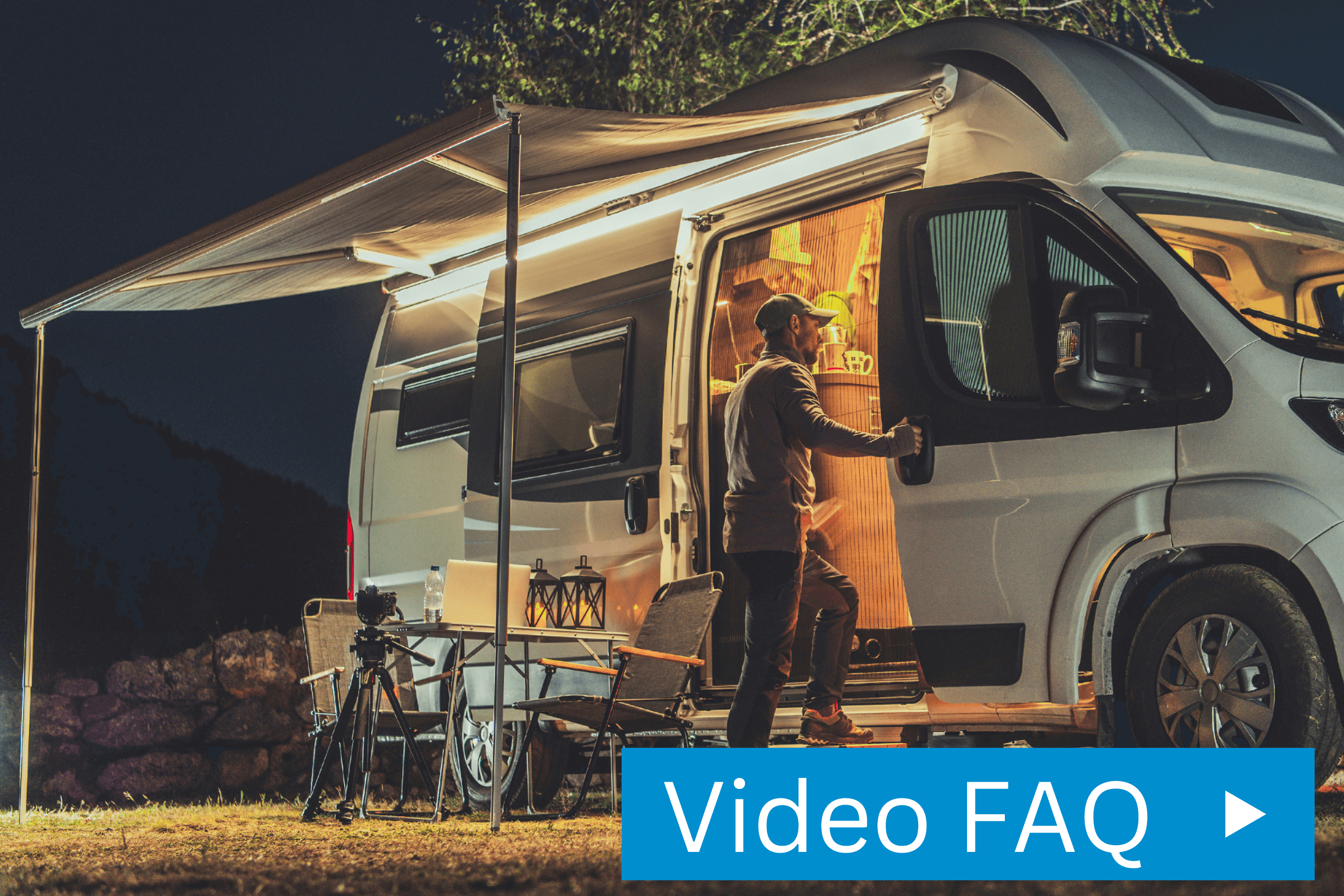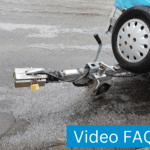FAQs: Insurance for RVs
FAQs: Insurance for RVs
Hey everybody I am Mike with Local Impact. I’m sitting down with Claude Singleton from Bray and Oakley today, we’re going to talk a little bit about everything. Claude, why don’t you go ahead and tell us just a little bit about Bray and Oakley and what you guys do?
Very good. Thanks Mike, Bray and Oakley Insurance Agency is a wonderful independent agency. By independent, that means that we represent several companies, we find what is best for our customer, which company is best. And with that company what coverage is best, that’s what we do. And it’s wonderful. We’re not defined by one company only. We do auto insurance, home insurance, life insurance, but also do business insurance. So we do a lot, a lot of different things. We have three offices in West Virginia. That’s where we started back in 1920. It’s a family owned business and for generations passed down. It’s wonderful. But started in Logan, West Virginia, and Chapmanville, West Virginia, and Weston, West Virginia, we also have Lexington, Kentucky where I’m out of, Richmond, Kentucky, which I’m also in often. And we have Pikeville Kentucky. So we have six offices to serve our customers. And it’s a good thing. But we’re multiline. That means different kinds of insurance, independent insurance agencies. And we’re glad to help.
Awesome, awesome. We’re Claude getting a lot of questions about RVs. And we’re going to talk about that just for a second. What is the formal definition of an RV?
Yes, well, I’ll give you my definition. We’ll stay away from formal. RV Of course, that’s a recreational vehicle. And it can be different kinds of things. It can be an independent, motorized mobile home, driving down the road, or it can also be a towed behind item, like a trailer or a camper. So it’s different kinds of things. But recreational vehicles are a general thing of, it’s really for recreation in general.
Sure, yeah. Awesome. So it’s pretty wide. What does say like an RV insurance policy cover?
Okay, that’s a good point. As we’re talking with someone that calls in and they say, “Well, I have an RV”, we will define it with them. Let’s talk about what kind of RV do you have, is that the kind that has its own engine that has its own motor. And if such, it is driving, you’re driving it, just like you’re in your car, or your van or your SUV, whatever. So you’re driving that. And that has a different set of insurance coverages that we need to make sure is in place. If it’s a tow behind thing, like it’s, it is a nice place, you can stay in it’s a recreational vehicle with a bathroom and a kitchen and bedrooms and things like that. But still a tow behind. That’s a trailer. And we will insure that slightly differently. If it’s a utility vehicle, you haul things around your house, and it’s still tow behind all those things we’re going to we’re going to cover with you on this about that.
Okay, awesome. Awesome. You’ve answered it a little bit. But one of the questions that we got is, what types of RV coverages are available. I know there’s complexity for housing and vehicles, and I’m sure it probably exists for RVs as well.
Yes, yes. Let me share more about that. The vehicle that is driving itself, we have to make sure that it is protected with liability coverage. What is liability coverage? As you’re driving down the road. If you impact someone else, and you cause injury to someone else, or property damage to someone else, your vehicle insurance needs to be prepared for that. And this is very important. You already are used to that on your car insurance and your use of that on your, whatever vehicle you have, you’re used to that already. It’s the same with the driving issue or the driving recreational vehicle. The home that’s on that’s on wheels, the motorhome that’s on wheels. It is itself a propelled vehicle that you’re driving. So it’s got to have certain liabilities. Interesting note if you’re towing that same kind of nice vehicle, it’s a recreational vehicle that’s being towed. You can sleep in it. You can use a bathroom in it, you can have the kitchen. If it’s being towed. It does not have its own liability insurance. That’s fascinating. So it gets attached to the vehicle that is towing it. So we are careful to talk with people and ask them what kind of RV are you speaking of? What kind of motorhome are you speaking of? That’s a big deal, and I’ll be glad to give more detail about that.
Sure, sure. Okay, so what determines as far as cost breakdown? Are there different levels? I guess what determines the cost of RV insurance?
That’s another good question. Going back to the liability, the level of liability that you choose to have is a concern. If you’ve got significant assets, and you’re concerned about being sued, because you’ve got significant assets, you want higher levels of protection. I’ll give you some examples. And this is not meant to be advice in itself, because a specific discussion will be better. And also, when I’m speaking of liability and potential for lawsuits, I always have to give a disclaimer, I’m not an attorney, I don’t pretend to be one, I have not played one on television. I’m an insurance agent, though. And I’ve seen claims. And so I’m talking as an insurance agent only. So here goes, let’s pretend that you’ve got $100,000 per personal liability, $300,000 total for accident liability, that’s for bodily injury liability, and you’ve got 100,000 property damage liability. Now, that’s a certain level of coverage, and you can have more or less than that. But at that level, there may well be a premium that’s charged for that. And if you have significant assets to insure, or if you just are concerned that if I’m sued, I don’t want to be having to sell off things or happen to liquidate things, whatever, then you would want to consider more liability. And so that’s one factor of the insurance. Another factor of the insurance would be what’s the value of that item? What’s the value of that motorhome? Is it a $100,000 motorhome, or more? Or is it $50,000 or more? Or is it a pop up, pull behind camper or trailer thing as a pop up tent, and there’s different prices for that. And if you want to be protected, if you want that part of your vehicle to be protected, that is damages to the vehicle itself, that damages to the RV itself. Then there’s coverage for that, or let’s just say it is an old pop up trailer thing that you pull. It’s really old, and your parents gave it to you and it was worn out when they gave it to you. It functions, it rolls and it sets up as a tent. But you say it’s really no value, you may not insure that at all for damage to that vehicle, you’ll just have liability on your, on your protection to protect you. Because you’re being pulled by your vehicle, your vehicle pulling it provides a liability for that. But if something happens to that just say it was in a wreck, or you’re at the campsite and a tree falls on it. There’s no protection for you, for your stuff or for your camper. That would be liability only.
So, Claude, since you guys have so many different providers, I’m sure there’s many different avenues. What is the best way to insure my RV?
Okay, that’s a very good question. Because we’re independent, we’ve got different companies to choose from. We will study that and consider and discuss it with you. Is it better to add that to an existing auto policy that you already have? Or is it better to do that? Which we can often. Or should we have a standalone RV type of policy? And we will analyze how you use that. And all these things we’re assuming personal use, that’s not for business use, because that’ll be another discussion. But all this is personal use, how many miles you got to be putting on how far will you be traveling? What other packages you might want with that? Or is this gonna be local use and all those things will come into it. But we’ll discuss that. And we will help figure out the best for you and give you those alternatives. And you can make that decision, an informed decision. That’s what we do.
Great, okay, awesome, got you. So would my homeowner’s policy cover an RV if it’s parked?
That’s a good question. In general, and I’ll need to say this depends on companies and depends on states as well. But in general, we don’t depend on the homeowners policy to provide the coverage for that. In general, we don’t but there’s a possibility you can have coverage under homeowners insurance, but we generally do not recognize that. That’s not what we have our coverage for.
Okay, so what makes, are there similarities, differences between RV coverage and like, say auto coverage?
There really are. I mentioned earlier about the liability on car insurance and on auto insurance, you’ve got your liability protection to protect other people from your actions. And that is in the event that you injure them, the insurance company can pay up to so much per your policy limits the level that you chose, they can pay so much for per person and total for accident for that. And that’s important. Also the damages to their property that’s on there. There’s also comprehensive and collision coverages. And these are physical damages to that vehicle to that motorhome or to that recreational vehicle itself. That’s very important. All of it is very important in the whole package of things.
Okay, cool. Cool. If, if people wanted to reach out to you, what’s the best way that someone who’s got more questions about RV can find your Claude?
Perfect. You can see that on the listing here that we have at the bottom here. Bray and Oakley Insurance Agency, and I’m in Lexington, we’ve got offices, like I said six different places. Just call one of our offices. And if they want to speak with me directly, they can do that as well. Just have them ask for me and that’s okay.
Awesome. Awesome. Well, Claude, thank you for talking to us today about RVs greatly appreciated.
Glad to.




Leave a Reply
Want to join the discussion?Feel free to contribute!